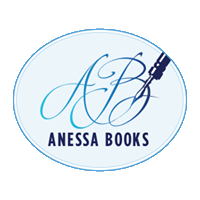I am extremely pleased to bring you a guest post today! Natasha has been so very kind to write this for me. I know this is an important concept that we all–no matter who we are, where we’re from or what we write–need to keep in mind. Thanks so much, Natasha!!
When & Why You Need A Sensitivity Reader
Natasha D. Lane
 Sensitivity Reader(n): beta readers from a marginalized community who audits media for any potentially culturally insensitive, offensive, and/or discriminatory content.
Sensitivity Reader(n): beta readers from a marginalized community who audits media for any potentially culturally insensitive, offensive, and/or discriminatory content.
Every writer knows the classic, “The pen is mightier than the sword.” It’s no surprise throughout history writing has been used to disrupt the mainstream, mock villainous figures, expose the truth, and essentially take on the man!
That being said, writers don’t always want to offend or insult. Sometimes we’re just looking to entertain and the offending is an unwanted result. So, how can you avoid unintentionally insulting your reader or an entire community? Hiring a sensitivity reader is a great step but how do you know if you really need one?
When to Hire A SR (A Few Examples):
- The main character is outside of your racial, religious, sexual, or gender identity
- Any of your main characters are outside of your racial, religious, sexual, or gender identity
- Your story centers on a community you are not a part of
- You’re concerned your content may unintentionally cross certain boundaries
- You’re relying on stereotypes to develop your character.
Now that we know when you may be wondering why. Why do you need a sensitivity reader? I touched on this a bit earlier but let’s look a little deeper.
From a human perspective and as an author, I’d want to get the story of a marginalized community as accurate as possible. These communities are frequently discriminated against and generalized. I’d never want to be another source of that discrimination or ignorance. Instead, I’d prefer to tell the real story and, in that truth, act as an ally (not a savior) for that community.
If I were to step back and take a more business perspective, sensitivity readings help prevent PR nightmares. It’s safe to say authors would prefer words like “racist,” “sexist,” “fetishizing,” and/or “insulting” not be used in readers’ reviews of their book. Not only are such words bad for branding, but often the cause of their use was not intentional. To put it simply, sometimes people just don’t know they’re being culturally insensitive. Ignorance is more often the culprit than ill-will which is where sensitivity readers come in handy.
Now, let’s look at a few examples where sensitivity readers would be useful.
Commons Stumbling Blocks:
Black vs. African American– No doubt this likely has happened to a writer both at their desk and in the real world. You have a character that’s of African descent but you’re not sure how to describe them. Do you use “black” or will that get a negative reaction from your audience? Maybe “African American” is your best bet. After all, it’s what you were taught in school. But, you’ve also heard “African descent” used so…hmm.
Accent vs. No Accent-Perhaps you’re describing a personal situation where a participant had a thick accent. This situation has inspired a story. Do you still use the accent? On the one hand, it’s authentic. The way you want to write the character’s dialogue is exactly how they spoke. On the other hand, the accent is often used for stereotyping or mocking certain communities. You don’t want to do either of those things. So, what do you do?
Slurs vs. Terms of Endearment-You have a character from a community where you’ve heard a certain slur tossed around. Well, it’s a slur to you but members of the community use it as easily as “best friend.” Should you use it in your book? But you’re not from the same community and it’s technically a slur, right? Still, if they used it, then don’t you have a right to as an author?
Sound familiar?
Writing’s hard enough. Save yourself a headache and hire a sensitivity reader.
You can check out my website to learn more about me, as well as my proofreading and sensitivity reading services. I read entire novels and sections.
Thanks for reading and happy writing!
